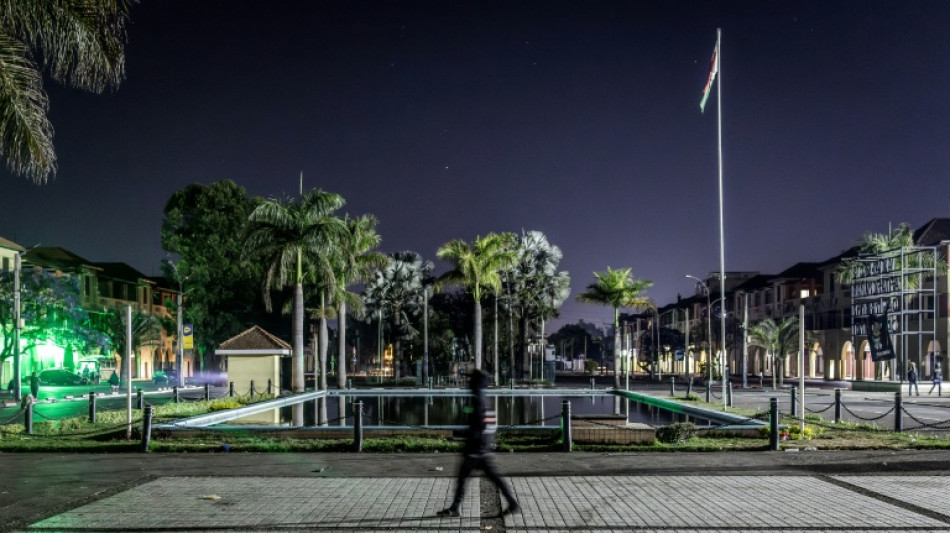
Madagascar on edge as embattled president's address delayed

A keenly awaited national address by Madagascar's cornered President Andry Rajoelina, who went missing as calls grew for his resignation, was delayed twice Monday as a group of armed forces tried to take control of the state-owned media.
Rajoelina has not appeared in public since Wednesday, fuelling speculation he may have fled the Indian Ocean nation rocked by more than two weeks of anti-government protests.
The protests initially focused on chronic power and water cuts in the impoverished country but developed into a broader anti-government movement that called for Rajoelina to resign.
Radio France Internationale said he left Madagascar on a French military plane at the weekend but French officials did not immediately respond to AFP's request for confirmation.
French President Emmanuel Macron also refused to confirm this.
Early Monday, mutinous soldiers and security forces who pledged support to the demonstrators at the weekend, joined jubilant crowds in front of the Antananarivo city hall in a rally that had an air of celebration amid expectations that Rajoelina would step down.
The presidency announced later that 51-year-old leader, who first came to power in a military-backed coup in 2009 but won elections twice after that, would speak to the nation at 7:00 pm (1600 GMT).
It then announced a first delay after "a group of armed forces threatened to take control of the state-owned media" and a second, to 9:30 pm (1830 GMT), because of "ongoing negotiations".
Rajoelina said at the weekend an "attempt to seize power illegally" was under way.
Among the crowds in the morning rally were soldiers from the army CAPSAT unit which had played a major role in the 2009 coup.
On Saturday, the unit declared it would "refuse orders to shoot" on demonstrations, some of which had been met with harsh security force action since they started on September 25.
Also present were gendarmerie officers, accused of using heavy-handed tactics during the protests. They admitted in a video statement to "faults and excesses" in their response.
The United Nations has said at least 22 people were killed in the first days, some by security forces and others in violence sparked by criminal gangs and looters.
Rajoelina has disputed the toll, saying last week there were "12 confirmed deaths and all of these individuals were looters and vandals".
As pressure mounted on Rajoelina, he pardoned eight individuals in a decree issued Monday, including French-Malagasy dual national Paul Maillot Rafanoharana who sentenced in 2021 to 20 years in prison for an attempted coup in Madagascar.
The case has been a source of tension between Antananarivo and Paris.
- 'Apologise and resign' -
Amid rumours that Rajoelina had fled, his government said Saturday he remained in Madagascar and was managing national affairs.
"We hope that he will apologise and genuinely announce his resignation," law student Finaritra Manitra Andrianamelasoa, 24, told AFP at the city hall gathering where a large flag of the Gen Z movement that led the protests was on display.
"Afterwards, we can consider organising elections and determine who will be suitable to take the leadership role," he said.
"We already expect him to offer his apologies to all Malagasy citizens, as we have had many casualties, relatives, who have been injured during the protests," said 19-year-old Steven Rasolonjanahary, also expecting a resignation.
To try to defuse the protests, the president last month sacked his entire government.
Meeting one of the demands of the protesters, the Senate announced Sunday the dismissal of its president, Richard Ravalomanana, a former general of the gendarmerie paramilitary police.
Madagascar has had a turbulent political history since it gained independence from France in 1960 and the turmoil drew expressions of concern from the region, including the African Union and South Africa.
The African Union's security council Monday called on all armed forces "to return to uphold their constitutional mandate, and to refrain from meddling in the political affairs of the country".
strs-ho/br/ach
K.M.Thompson--TNT